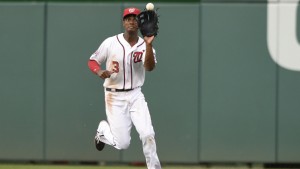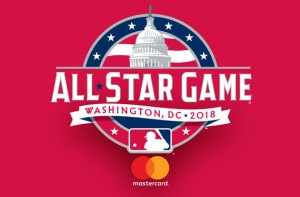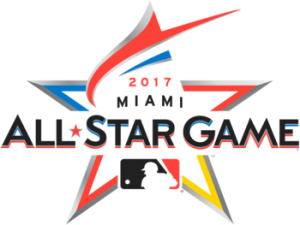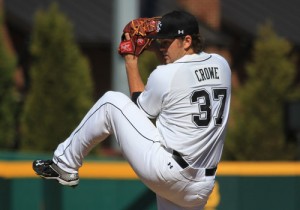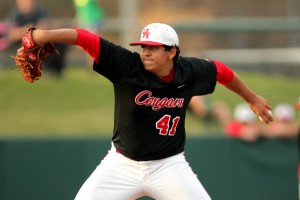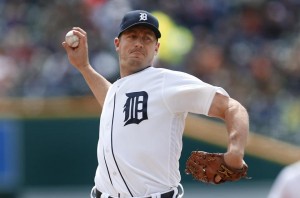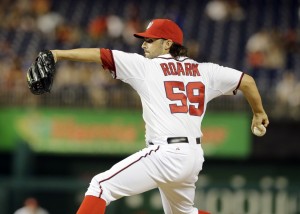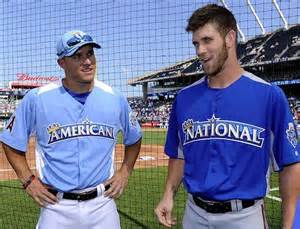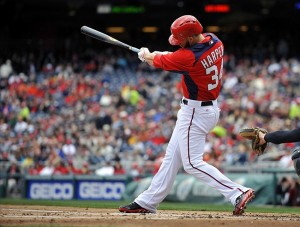Another week passing with barely any FA movement, and another set of questions taken by Jamal Collier.
Big Nats news of the week seems to be the team beating Michael A. Taylor in arbitration … over $250k. That’s 1/10th of 1% of their team payroll, for context. I *hate* it when teams go to arbitration battle with their players; by all accounts the team basically trashes the player in the presentation, making all the arguments about why they’re NOT worth the salary. I think it completely poisons the relationship between player and management. The Nats under prior management used to do this constantly; they were among the league leaders for years in arbitration cases. This is the 5th arb case that I believe Mike Rizzo has argued in the 10 years he’s been in charge. Here’s the previous cases the team has argued:
- 2006: Alfonso Soriano. After acquiring him they immediately went to war with him … which was only a precursor to the Spring Training war, basically forcing him to play the OF. Great way to treat your team’s best player. Asked for $12M, got #10M when the club beat him, and he left via FA after the season.
- 2007: Chad Cordero: Cordero beat the Nats in Arb over $500k difference. The team and player were able to come to a pre-arb agreement in 2008 but Cordero’s days were numbered.
- 2007 John Patterson: The team and Patterson were way, way off (1.8M vers 1M); the club won, then releaesd Patterson before the season had even started.
- 2008: Felipe Lopez: the club beat Lopez over $300k … then released him mid-season.
- 2009: Shawn Hill; went to battle again over $275k … then released him in the spring before they had to pay a dime.
- 2010: Sean Burnett: went to battle over $150k. That’s right: 150,000, one of the smallest argument values I can find in the last decade. Club won.
- 2010: Brian Bruney: just after acquiring the guy (similar to this year’s Kyle Barraclough situation) they immediately argued against him in arbitration and won. Bruney never contributed in a meaningful way and the team cut him loose in May. I thought at the time he was suffering from a “Bruised Ego” as the source of his crummy performance, but he didn’t pitch any better the next year for the White Sox and was soon out of the league.
- 2012: John Lannan, who the club beat to only pay him $5M versus $5.7M … then immediately relegated him to AAA for most of the season. He made 33 starts for Washington in 2011 … then 24 starts for Syracuse in 2012. What an insult. Unsurprisingly, he was non-tendered before the 2013 season.
- 2015: Jerry Blevins, who beat the team for $200k … and was then dumped in trade a few weeks later in what I read at the time (and still believe) as an act of petulance from Rizzo.
We havn’t had an arb hearing since the 2015 debacle. But now it seems like the team will battle not once but twice.
Of these 10 hearings (including the Taylor hearing): here’s some interesting stats:
- Club has won 7 of the 10 hearings
- Seven of the Nine players that went to arbitration were GONE from the team (one way or another) that same season. Most of them cut either in spring training or quickly there-after.
So, it doesn’t bode well for Taylor or Barraclough’s future the fact that they’re arguing against the team.
Lets get to the questions.
—
Q: How are the Nationals matching up against the rest of the division this 2019 season?
A: What, you can’t read the papers? Here’s the summary:
- Nats have filled every hole they had and spent more than 14 other teams combined this off-season. They’ve conservatively added 10-12 “wins” and are projecting on Fangraphs to win the division.
- Braves have grown a very solid core and did a little FA work on the edges, but have no reason not to repeat what they did last year. They’re only projecting to a $122M payroll, and that’s AFTER signing Josh Donaldson to a $23M one year deal.
- Phillies have signed a couple guys, but already had a fully formed rotation and still have $50M of room. But they could still land one of the two big FAs and improve quickly.
- Mets have made some odd choices (acquiring Robinson Cano), have a ton of payroll just to Cano and Cespedes, and have completely re-made their bullpen. Are they contenders?
- Marlins continue to be a dumpster fire, projecting to spend just $84M in 2019.
So i’m predicting Nats win division, Braves to WC, Phillies just miss out but still win 88 games, Mets go about .500 and Marlins lose 105 games. Its going to be the most competitive division in the game.
Collier predicts a competitive division with four teams actually trying. That’s refreshing.
—
Q: What are the Nationals’ needs? Do they need left-handed bullpen help and maybe a utility player?
A: In an ideal situation sure they’d love more Lefty bullpen options. But they’re kinda out of cash. They could also use rotation insurance, but looking at the list of starters still available (nearly 20 who had MLB starts last year, several of whom could improve nearly any rotation in the game) I doubt we’ll be able to spin a MLB deal for any of them.
Collier agrees, thinks the bench is fine.
—
Q: I would rather have another pitcher like Dallas Keuchel or even Wade Miley, and let Harper go. What do you think?
A: well, this guy clearly missed the news, b/c Miley is already gone (to Houston, improving them to be at least a top 10 rotation now if not slightly better). But this asker also clearly doesn’t know just how close to the luxury tax the team is.
If you’re going to go over … then frigging go over. Sign Keuchel, sign another loogy, blow past the cap by $20M, Sign Harper, blow payes st it by $50M. It seemed to do pretty well for Boston last year.
I don’t think there’s a team in the league that wouldn’t like having Keuchel in the fold (maybe the Cubs or Indians); certainly Keuchel would be an upgrade over Joe Ross for us.
All this being said … the tea leaves say one thing to me pretty clearly; Harper is gone, the team has already moved on. Is this even a discusCollsion?
Collier notes they’re about $11M under the cap, have indicated pretty frequently they intend to stay below it, and
—
Q: With the injury history regarding Stephen Strasburg, Patrick Corbin and Ross, is it possible there will be a six-man rotation instead of five?
A: So, on the one hand its true that no team can go 162 games without having to rely on additional starters…. but it’d be stupid to go to a 6-man rotation with a bunch of veterans like what the Nats are projecting. This isn’t high school; these guys are trained professionals, highly paid, and are conditioned to pitch ever 5 days.
What is true is this: our 6th, 7th and 8th depth chart starters WILL get starts. So while it’d be awesome to have a ton of depth … you have to store it somewhere. So project Erick Fedde and Austin Voth and some veteran 35-yr old MLFA hanging on for one more shot to contribute in 2019.
Collier says the same thing about routines.
—
Q; Any word yet on non-roster invitees to Spring Training?
A: Yes; there’s going to be a few of them. Some of them will look great. A couple will stick around. In fact, we do an annual post here every year about NRIs who make it. Here was 2018s http://www.nationalsarmrace.com/?p=15657 and 2017’s: http://www.nationalsarmrace.com/?p=13409 .
Last year, 1 NRI made the team out of spring, another 4 played for the team in the 2018 season, and Edwin Jackson was an NRI for us and excelled for Oakland.
So, NRIs are important.
Collier notes a couple of specific NRI arms who may very well be options to make the bullpen at the expense of someone like Sammy Solis.
